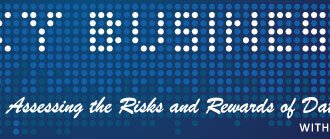According to a recent HBR article, an astounding 89% of marketers rely on their gut-feel when making decisions. As a marketer who relies on data to inform decisions every day, this fact amazes me.
According to a recent HBR article, an astounding 89% of marketers rely on their gut-feel when making decisions. As a marketer who relies on data to inform decisions every day, this fact amazes me.
Yet, I’ve read blogs recently advocating for an increased reliance on using gut-feel in decision making. This argument in effect, wants to keep decision making status quo and firmly in the realm of the gut-feel rather than advocating for an evolution towards a greater use of analytics. This stance surprises and disappoints me. Considering decisions have been made solely gut-feel forever and is still used today by the majority of decision makers in the Age of Analytics, shouldn’t we be arguing for the opposite?
Any executive that advocates for increasing reliance on gut-feel, anecdotes or intuition in decision making around people, whether it’s marketing or talent management, rather than using sophisticated analytics technologies available today to find trends and patterns in aggregate is missing the entire value proposition of analytics. They are also missing a huge opportunity to advance their function and organization. What follows are some reasons why you should not relysolely on your gut-feel in decision making.
Only using gut-feel is status quo decision making. Gut-feel is the very definition of old school and has been used in abstraction from analytics since people started making decisions. Relying solely on gut-feel is what the old school baseball scouts used in Moneyball to make judgments on players before Billy Beane introduced them to enhanced decisions with sophisticated analytics. Sadly, this is what many hiring managers today still do rather than should do.
Tip: As Billy Beane said at IBM IOD last fall, “Measure the data that has the strongest correlation to winning games [the people themselves].” Beane does not rely on his gut-feel or anecdotes when signing players, he looks at trends in aggregate to make decisions. This same concept can be applied to talent and customer decision making (as Talent Analytics CEO Greta Roberts points out in her recent blog, they’re both people after all).
Gut-feel does not scale. Reliance solely on gut-feel and anecdotal evidence introduces bias and equates to simply relying on your gut in story form. Every customer and employee has different preferences – using your gut-feel about based on one customer or employee tells you only about that person and is completely impractical for scaling across a global enterprise.
Tip: Instead of relying solely on gut-feel, collect employee analytics internally and correlate to business performance. This will enable you to spot trends, patterns in aggregate that will yield less biased and more effective people decisions. Consider analytics a way to inform your intuition.
Only relying on gut-feel is expensive. The cost of poor hiring decisions is well documented and frequently costs three times the employee’s salary.
Tip: Instead of relying solely on gut-feel during an interview that the candidate will be a good fit to the role, utilize analytics to identify how well the candidate fits against an ideal job benchmark.
Gut-feel only compares to experience. Gut-feel can only be compared to your own personal experience. Is your hunch an anomaly or is it part of a broader trend of customer or employee behavior? Without more data your gut lacks context as you have nothing to correlate it to. For example, the looming analytic talent shortfall is a popular topic in the analytics community today yet thought leaders keep providing their own personal anecdotal evidence for what to look for when hiring these rare professionals.
Tip: Instead of relying only on gut-feel when hiring talent, compare your current team to aggregated data from the broader industry to make better hiring decisions.
Relying solely on gut-feel is like flipping a coin; analytics advise you to pick heads.
No matter what your function or level, if your job involves making decisions or working with people, analytics can make your decision easier. If your analytics said your next coin flip would probably land heads, would you rely on gut-feel about the one time you saw it land tails or the data pointing to the likelihood it will be heads?
Tip: As a marketer who relies on analytics every day to inform my decisions, I recommend using data to point to the behavior of most people rather than one person.
In closing, organizations can use analytics to remove biases and inform their intuition. When analytics are used across functions and all levels of the organization to enhance everyday decision making it becomes an extremely valuable asset.
Instead of advocating for more gut-feel decision making, join the progressive businesses rapidly moving away from the old school reliance on gut-feel (thinking) and towards analytics (knowing).
Mike Kennedy is a Technical Evangelist at Talent Analytics, Corp. He can be reached via mike@talentanalytics.com and @talentanalytics.







